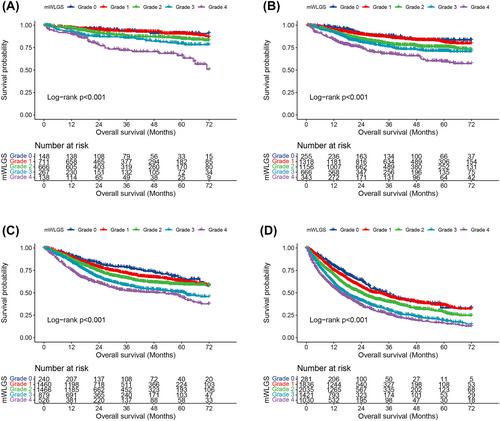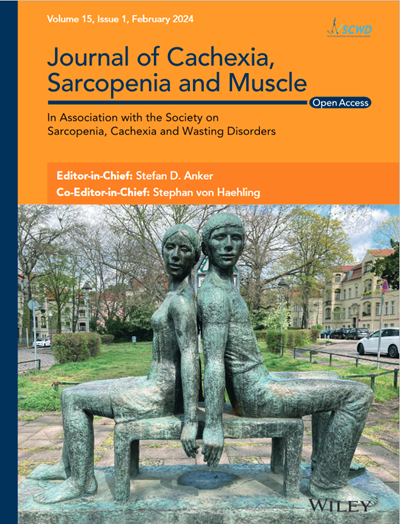Development and applicability of modified weight loss grading system in cancer: a real-world cohort study
Abstract
Background
The original weight loss grading system (WLGS) was developed in western population, which did not perform effectively in cancer patients from China. This study aimed to develop and validate the modified WLGS (mWLGS) in the prognostic assessment of cancer patients in China.
Methods
A prospective multicentre real-world cohort study involving 16 842 patients diagnosed with cancer was conducted. Cox regression was used to calculate the hazard ratios for overall survival. Logistic linear regression was used to assess the odds ratio for 90-day outcomes.
Results
We calculated survival risks for the 25 mWLGS groups and clustered the approximate survival risks. Finally, we revised the prognostic grading system for mWLGS to include five grades of 0–4. Compared with the original WLGS, the mWLGS had a better prognostic differentiation effect in predicting the prognosis of patients with cancer. The survival rate gradually deteriorated with increasing grade of mWLGS, with the survival rate of grade 0 decreasing from 76.4% to 48.2% for grade 4 (76.4 vs. 72.8 vs. 66.1 vs. 57.0 vs. 48.2%, respectively). The mWLGS provides effective prognostic stratification for most site-specific cancers, especially lung and gastrointestinal cancers. High-grade mWLGS is independently associated with an increased risk of poor quality of life and adverse 90-day outcomes. Multivariate Cox regression analysis showed that the mWLGS was an independent prognostic factor for cancer patients in the validation cohorts.
Conclusions
Compared with the original WLGS, the mWLGS can better stratify the prognosis of cancer patients. mWLGS is a useful tool for predicting survival, 90-day outcomes, and quality of life in patients with cancer. These analyses may provide new insights into the application of WLGS in cancer patients in China.


 求助内容:
求助内容: 应助结果提醒方式:
应助结果提醒方式:


